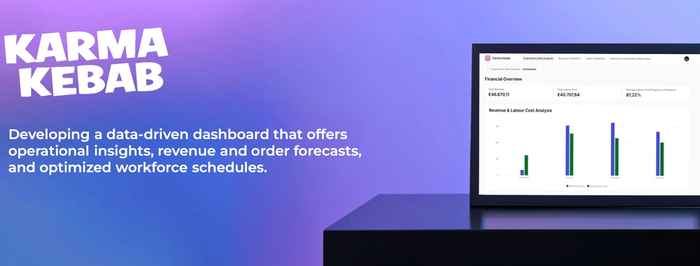A Data-Driven Dashboard for Karma Kebab Restaurant

The project addressed profitability challenges at Karma Kebab caused by overstaffing, understaffing, and limited operational insight. A data-driven dashboard was developed to provide optimized workforce schedules and support more informed decision-making.
The students built a Random Forest model to predict hourly order volume one day ahead, achieving 87% accuracy, and used machine learning and time series models to forecast daily revenue, with a mean absolute error of €639. Additionally, a Two-Stage Stochastic Integer Programming (TSSIP) model was implemented to optimise workforce scheduling, reducing weekly labor costs by 25% compared to a deterministic baseline.